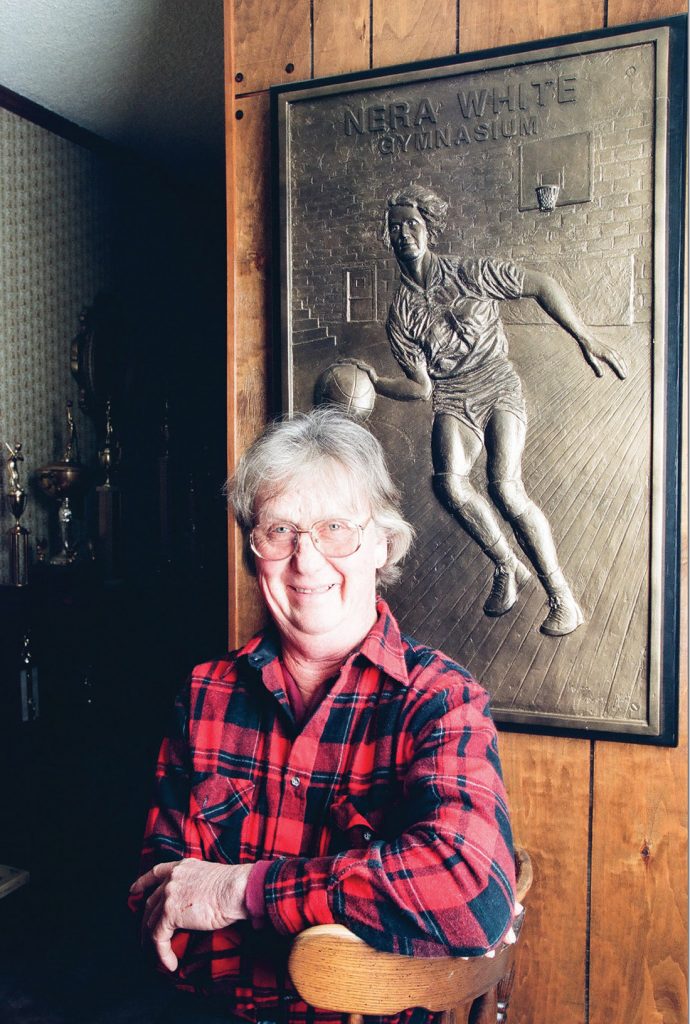
Peabody College alumna Nera White powered the first national women’s basketball dynasty and became the game’s first female superstar—a dominance that led her into the Basketball Hall of Fame as one of the first two women to be enshrined there. She died April 13 in Gallatin, Tennessee, from complications of pneumonia at the age of 80.
White, who at 6 feet 1 inch tall could dunk the ball, personified every superlative of the sport. She led a team sponsored by Nashville Business College to 10 Amateur Athletic Union national championships from 1955 to 1969. She was named most outstanding player in a national tournament 10 times, and an AAU all-American for 15 consecutive years. Her team won 91 of 92 consecutive games.
In those days the AAU was virtually the only league in which women could continue to play basketball after high school. They played for teams often sponsored by companies or small colleges. Because Peabody had no women’s basketball team, White began playing for Nashville Business College in 1954, wearing No. 11.
At Peabody she fulfilled all requirements for graduation except completing a stint as a student teacher. Painfully shy throughout her life, she declined to do it.
In 1957, White led a U.S. national team to a gold medal in the world championships, defeating the Soviet Union in a Cold War matchup. She was the team’s leading scorer and was named most valuable player.
The Macon County, Tennessee, native also was an accomplished softball player. The Naismith Basketball Hall of Fame describes her as “one of the most complete female athletes in history.” In 1999, Sports Illustrated ranked her 51st in its list of the greatest sportswomen of the 20th century and sixth in basketball. She retired from competition in 1969.
White is survived by a son, sister, brother and two granddaughters.
—THE NEW YORK TIMES (EXCERPTED)